The Economics and Statistics Division maintains archives of previous publications for accountability purposes, but makes no updates to keep these documents current with the latest data revisions from Statistics Canada. As a result, information in older documents may not be accurate. Please exercise caution when referring to older documents. For the latest information and historical data, please contact the individual listed to the right.
<--- Return to Archive
For additional information relating to this article, please contact:
May 24, 2023CANADA FINANCIAL STATISTICS FOR ENTERPRISES, Q1 2023 In Q1 2023, Canadian enterprise net income before taxes (seasonally adjusted) declined by $9.82 billion from the previous quarter to $165.86 billion. Net income before taxes was down $3.87 billion for non-financial corporations to $119.31 billion and was down $5.95 billion to $46.55 billion in finance and insurance corporations.
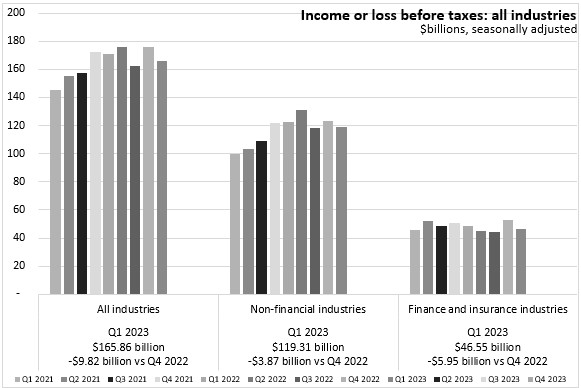
Among resource extraction industries, there was a strong rise in mining net incomes before taxes as well as a small gain in agriculture/forestry/fishing. However, these gains were more than offset by falling net incomes in oil and gas extraction.
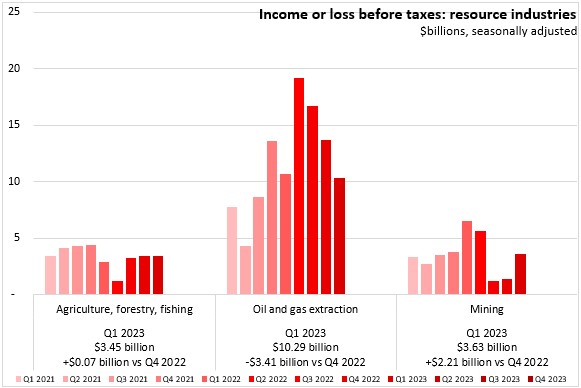
Construction net income before taxes edged down while utility net income edged up.
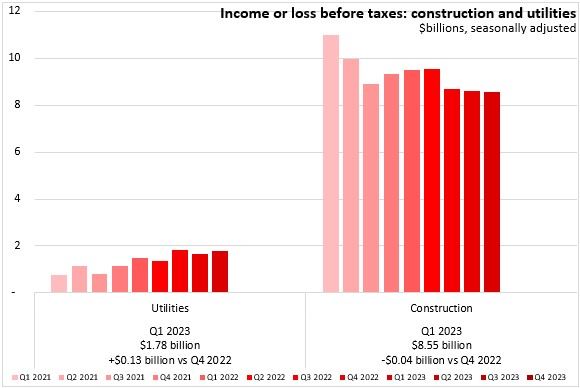
Within manufacturing industries, food and soft drink manufacturing net income before taxes rose, as did net income for alcohol/tobacco/cannabis manufacturers.
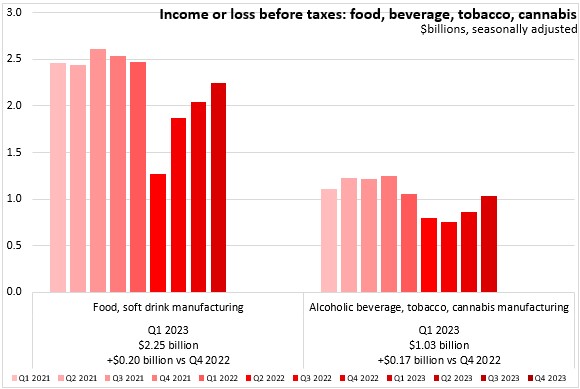
Among primary processing manufacturers, net income continued to decline in forest products. Net income before taxes also fell for petroleum and coal product manfaucturing. Net income also rebounded for primary/fabricated metal manufacturers.
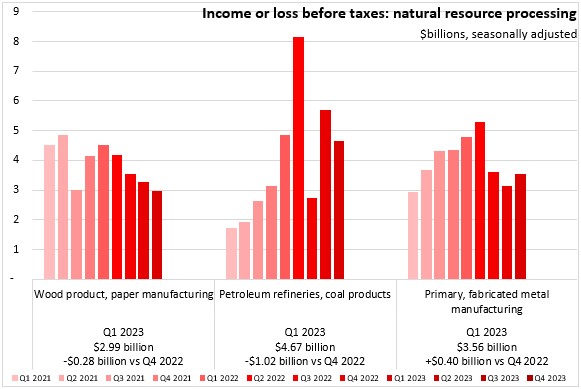
In Q1 2023, there was a sharp decline in net income before taxes for chemical manufacturers as well as for non-metallic mineral product manufacturers. These declines were just about matched by rising net incomes for pharmaceutical/soap/agricultural chemicals manufacturers as well as plastic and rubber product manufacturers.
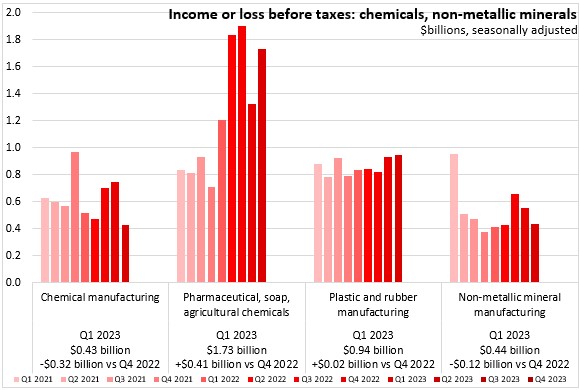
After rebounding in Q4 2022, net income before taxes for motor vehicle manufacturers once again turned negative. There was an increase in net income for motor vehicle parts manufacturers as well as a small decline in net incomes for aerospace, rail and ship manufacturers.
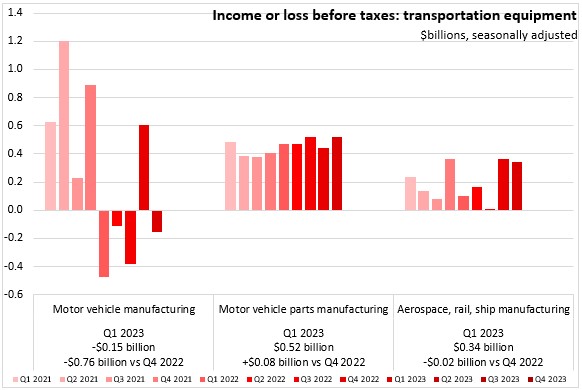
Net income were up among Canada's clothing, textile and furniture manufacturers, but down for computer and electronics manufacturers.
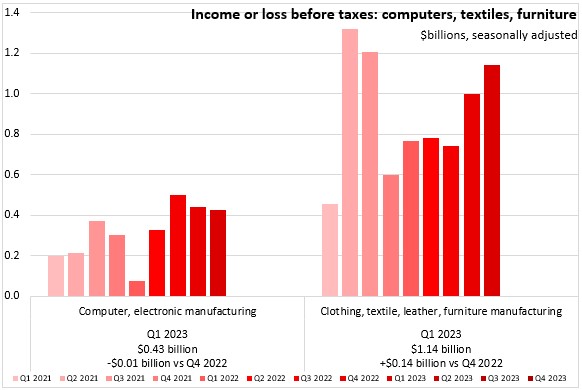
Net incomes before taxes in wholesale trade were down on declines in building materials wholesalers as well as other wholesalers. Machinery and equipment wholesalers reported a small gain in net income while net income for motor vehicles and parts wholesalers was little changed.
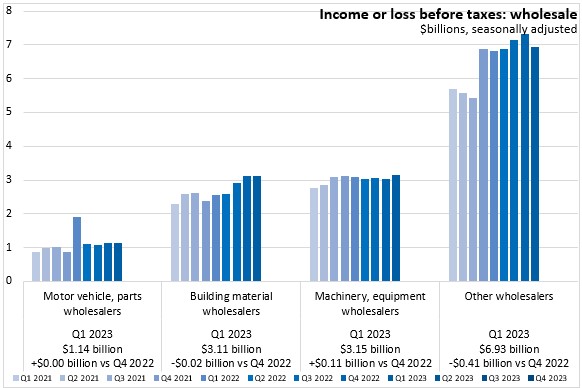
Retail net income was up for motor vehicles and parts dealers as well as for food and beverage stores. Net incomes before taxes were down slightly for clothing, sporting goods, and general merchandise as well as for other retailers.
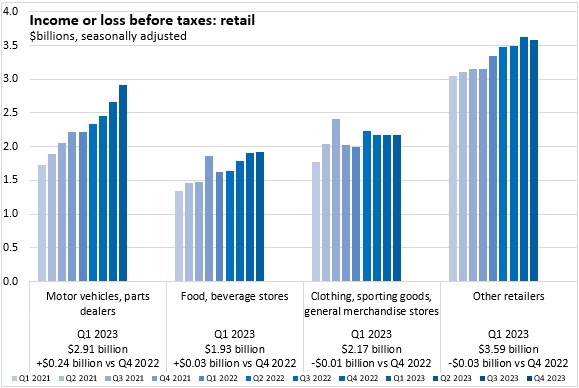
Net income for transportation and warehousing businesses were down on a decline in transportation, postal and courier companies, more than offsetting small gains in pipelines and warehousing.
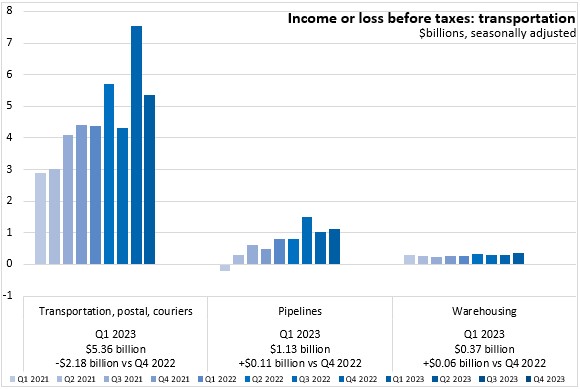
Net incomes were down for both broadcasting and content creation but up slightly for telecommunications providers.
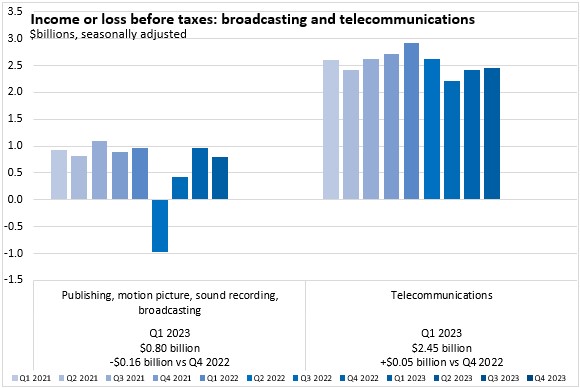
Net incomes before tax in real estate as well as rentals and leasing improved last quarter.
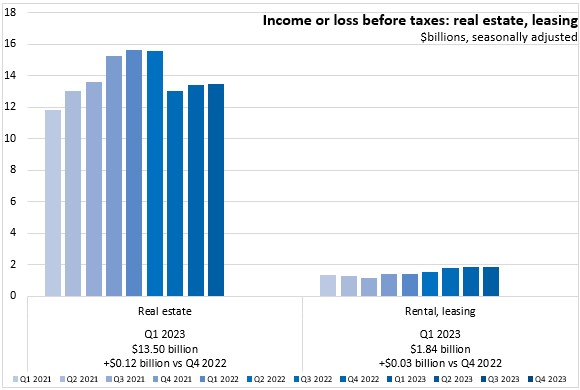
Net incomes continue to fall for professional/technical service industries. Net incomes edged up for administrative, support and waste management services and decreased slightly for personal and repair service industries.
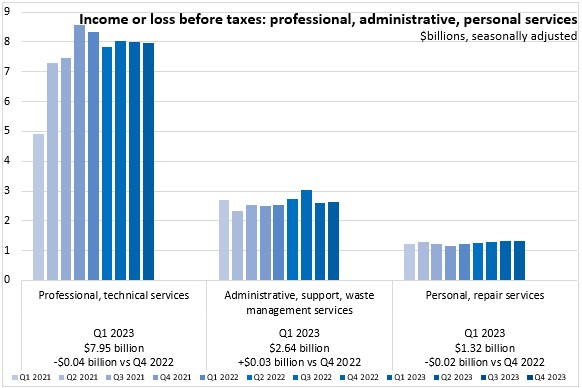
Net incomes were up for businesses in health, education and social assistance as well as in arts, recreation, accommodation and food services.

Both banking and central credit unions reported modest gains in net income before taxes. There was little change in net income for local credit unions.
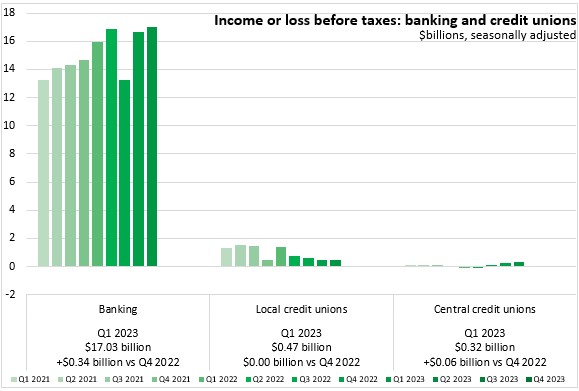
Net incomes rebounded for credit card and consumer lending companies. There was also a smaller gain for other non-depository credit intermediation, which was more than offset by declining net income for financial transactions processing and loan brokers.
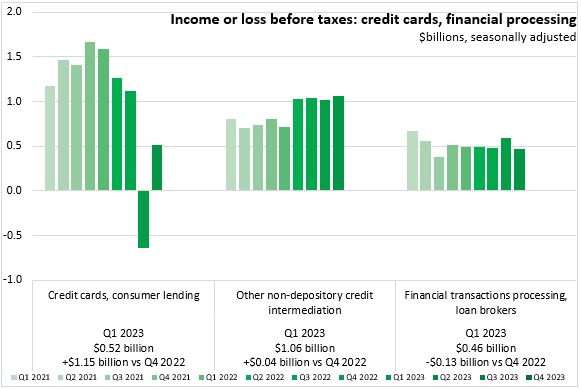
Net incomes fell substantially for miscellaneous financial intermediation activities as well as for securities, commodities exchanges and portfolio management.
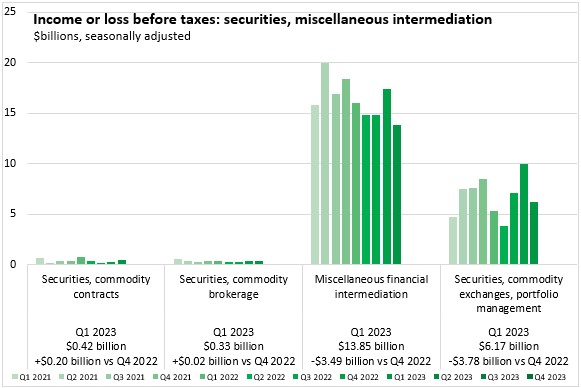
Net incomes expanded for life, health and medical insurance carriers, but not for the rest of the insurance sector.

Source: Statistics Canada. Table 33-10-0226-01 Quarterly balance sheet and income statement, by industry, seasonally adjusted (x 1,000,000)
<--- Return to Archive